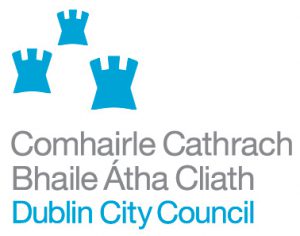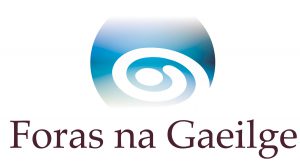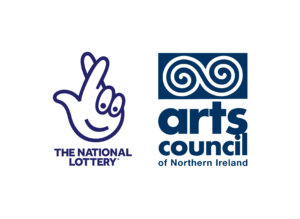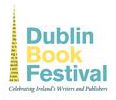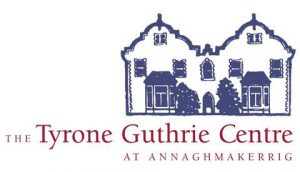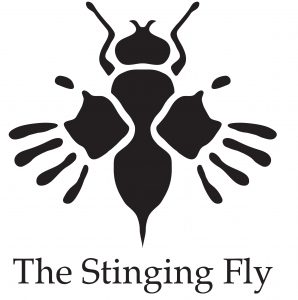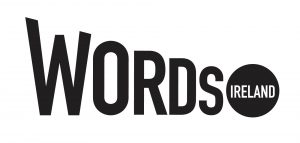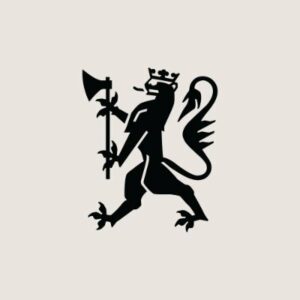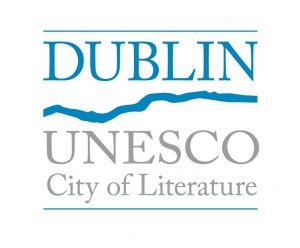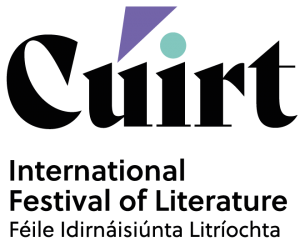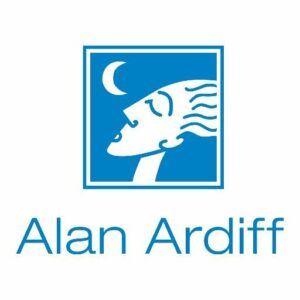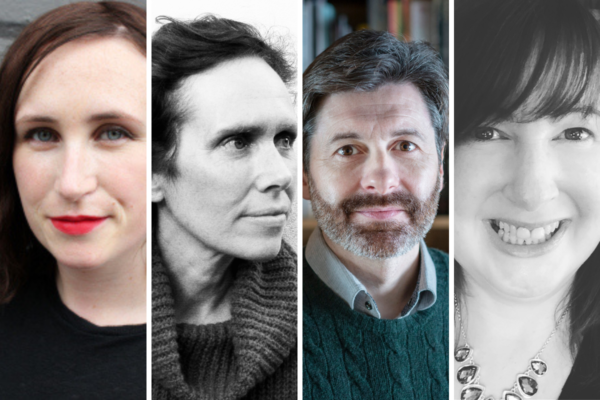
23 March, 2022
Evolution: An Interview with Máire T. Robinson, Arnold Thomas Fanning, Deirdre Cartmill & Helen Blackhurst
Our Evolution Programme is currently ongoing with a suite of bespoke professional development supports for selected writers. In the last few weeks, we have been sharing interviews with our current writers with discussions on writing, professional development, and more. Previously we interviewed Liz Quirke, Olivia Fitzsimons and Melatu-Uche Okorie, Sheila Armstrong and Maeve Galvin. This week we sat down with Máire T. Robinson, Arnold Thomas Fanning, Deirdre Cartmill and Helen Blackhurst.
1. What are you reading at the moment?
Máire: I’ve just finished Deirdre Sullivan’s Savage Her Reply. It’s a reimagining of The Children of Lir from the point of view of Aoife. I love Deirdre’s writing and admired the scope and inventiveness of her take on the classic myth. Next on my reading list is the short story collection Where the Wild Ladies Are by Aoko Matsuda (translated by Polly Barton). Niamh Boyce kindly recommended this to me during our mentorship session. It’s feminist retellings of Japanese folktales, so sounds exactly my cup of tea.
Arnold: I’m reading a biography of Portuguese writer Fernando Pessoa by Richard Zenith called Pessoa: An Experimental Life and really enjoying its attention to detail and vivid scene setting. It’s over 900 pages long however, so I feel I may be with it quite a while. I’m also catching up on my journal reading, so I’m making my way through the most recent Paris Review I have, the Winter issue. I particularly enjoyed the essay by Emmanuel Carrère titled ‘Exhaling’ in this issue.
Deirdre: I’m reading La Belle Sauvage by Philip Pullman. He’s the most fantastic storyteller. Everything is so vivid and he just draws you in. I’m reading two beautiful poetry books I was gifted – We Are the Weather by Jim McElroy and A Lore of Civics/Falling in Love with Bosie by Patrick Ramsey. Both these books are special to me. I mentored Jim when he was starting to write – in fact I was the first person to read his poetry. And Pat was my first poetry publisher. They’re both first collections and there’s always a bit of magic in that. I’m also reading How to Own the Room by Viv Groskop as I’m trying to develop my skills as a speaker. It’s a great book about being authentic and coming from your truth.
Helen: I have just finished Arnold Thomas Fanning’s brilliant memoir Mind on Fire, a real rollercoaster of a read. Next on my list is Douglas Stuart’s ‘Shuggie Bain.’
2. What type of writing do you specialise in? Fiction, poetry, memoir etc. OR Can you tell us a bit about what you’re working on at the moment?
Máire: I’m currently writing a linked short story collection. It’s set in contemporary Dublin City but is intertwined with elements of myth, legend and folklore. (Hence the current folklore obsession.) In screenwriting projects, I have a six-part comedy series in development with Tailored Films. (We received some good news about it recently, so hopefully I can share further details about that soon.
Arnold: I’ve written for theatre in the past, but these days my writing practice is mainly prose- memoir and creative nonfiction, as well as short stories.
Deirdre: I’m best known as a poet but I write in several forms. At the moment I’m revising my third poetry collection after some gentle and insightful poetry mentoring from Damian Gorman as part of the Evolution Programme. I’m also writing new poems for my fourth collection, inspired by my time as Writer-in-Residence for Belfast Cathedral. I’m putting the final touches to my first non fiction book. I had two heart attacks in a week at the age of forty-three. The book is about my journey from trauma, grief and emptiness to divine love, healing and miracles, and it guides the reader on their own journey of healing and change. That’s my passion project. I’m also itching to write a new draft of my first young adult novel. I received some wonderful peer to peer mentoring from Sue Divin as part of this programme, so I’m revising it in my head but haven’t yet found the time to sit down and write.
Helen: The novel I am working on is a historical fiction set in Ireland and Australia between 1849 and 1852, and follows the life of a young Clare woman transported for sheep stealing. My work to date has focused on themes of displacement (both physical and psychological) and cross-cultural divides; how natural environments shape and influence character, community and nation.
3. How have you enjoyed working with the other 11 participants?
Máire: It’s been great! My favourite moment was the readings we did for each other at the Irish Writers Centre. There was such a range of form, style, tone and expression. It was lovely to see each of the writers in their element, sharing their words.
Arnold: It’s been great, there’s been some great discussions and presentations and I really have felt part of a writing community through working with them all.
Deidre: It’s been great to work with the other participants. There is so much talent in the group, and such a mix of voices. Everyone has been open and generous in sharing their experiences and their expertise. It’s been liberating to bounce questions off other writers and gain new insights. There has also been a lot of honesty which is great, as the writer’s journey can be hard, lonely, thankless and full of doubt – but we keep going because it’s also magical, uplifting, soul soothing, and what we were put on this earth to do.
Helen: The chance to meet other writers on the program and share experiences was great, especially when we managed to meet in person, and resulted in a sense of feeling more connected to a broader writing landscape in Ireland.
4. Did you take part in any of the One-Off clinics, and what was discussed?
Máire: Yes, I took part in a one-off clinic on Performance for Writers with Maria Tecce. I’ve never done any specific training in this area before. I’ve done several readings over the years. Some have gone well. Some… have not. So, it was great to receive some practical advice, performance techniques, and strategies for overcoming nerves that I can use going forward.
Arnold: Currently just waiting to make an appointment for my Clinic, to receive professional development guidance.
Deirdre: I had a One-Off clinic with a publisher, Ciara Doorley from Hachette Ireland. We talked about my non fiction book. It was one of the best experiences of the programme for me. Ciara was so open and honest. She helped me to understand what publishers are looking for, and helped me see my book in a new way. I’d been feeling anxious about it, as it’s a new form of writing for me, but she helped me relax and find the love for it again. She reminded me that staying true to what I want to write is the key.
Helen: I met with a publishing editor. We discussed where my work might fit into the industry and ways I might branch out in terms of my writing.
5. Do you feel as if you’ve grown through the Evolution Programme?
Máire: I’m leaving the Evolution Programme with a sense of forward momentum for my work-in-progress, but more importantly, I’m leaving with a sense of connection to the wider literary community. Writing can be a lonely pursuit at the best of times, and not having the social element of in-person book launches, readings, and events over the past couple of years has amplified that sense of isolation. The Evolution Programme has offered the opportunity to connect with other writers, both as mentors and peers, and that has been an invaluable experience.
Arnold: Definitely- and I will miss the regular meet-ups, and would recommend it strongly to other writers.
Deirdre: I can’t express how much I’ve grown through this programme. It’s both taught me new things and validated what I already knew. I was feeling lost and alone in my writing and lockdown had compounded this. I was really stuck and unclear what to do. This programme has given me a clear direction to take next in my poetry, playwriting, non fiction and YA writing. I feel ready to go out into the world and approach publishers, festivals and agents with confidence. But most importantly it has reminded me to focus on my writing life, to let my writing time be sacred, to nurture myself as a writer, and to let the words lead me.
Helen: This programme has fed me as a writer on many levels. Having to build a series of personal supports and development opportunities forced me to evaluate what I needed as a writer. The answers were surprising and have challenged me to take on new learning and make connections I might not otherwise have made. The support of the IWC staff and the other writers was invaluable. My writing life feels richer and deeper for the experience.




